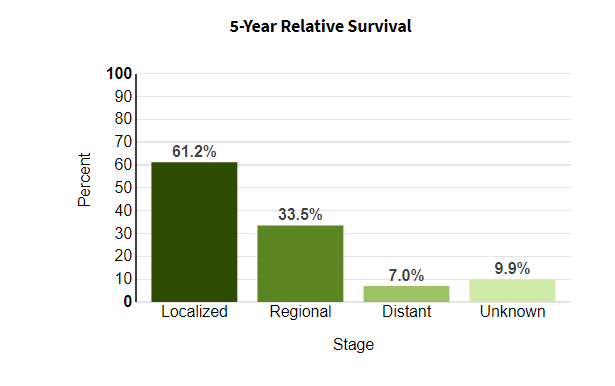New Measure Coming for
Lung Cancer Screening
November 15, 2022 · Andy Reynolds
For nearly 10 years, the U.S. Preventive Services Task Force (USPSTF) has recommended annual lung cancer screening for certain patients.
Early detection is key. Lung cancer is treatable and has a better prognosis when found at an early stage, when hallmark symptoms may be absent. Surgery alone may be curative.
More than three in five (61%) patients diagnosed while lung cancer is in a localized stage are likely to survive 5 years. When diagnosed after cancer has progressed to a regional stage, the proportion falls to one in three (34%).
Despite the known benefit of early detection, uptake of the USPSTF recommendation has been low. Fewer than 15% of eligible patients may have received a screening. A new project at NCQA aims to change that.

Early Detection Saves Lives: The National Cancer Institute’s Surveillance, Epidemiology, and End Results (SEER) Program says finding lung cancer when it’s localized improves your chances of survival.
New HEDIS Measure in Development
Through an award by the American Cancer Society and the American Lung Association, NCQA has begun development of a HEDIS® quality measure for lung cancer screening.
The NCQA effort is building on work by USPSTF and others. For current smokers, and those who stopped smoking within the past 15 years, USPSTF now recommends an annual low-dose computed tomography (CT) screening:
- Beginning at age 50, through age 80.
- At a 20 pack-year smoking history threshold (the equivalent of one pack per day for 20 years, two packs per day for 10 years and so on).
Targeted Approach with Quality Goals
NCQA will look at how routine information shared in health encounters can help identify individuals who should get a lung cancer screening. Once implemented, this measure will help payers and providers steer a greater number of high-risk patents to lung cancer screenings, facilitate early detection, and ultimately reduce the number of deaths attributed to lung cancer.
We expect to develop the measure by the end of 2024.








